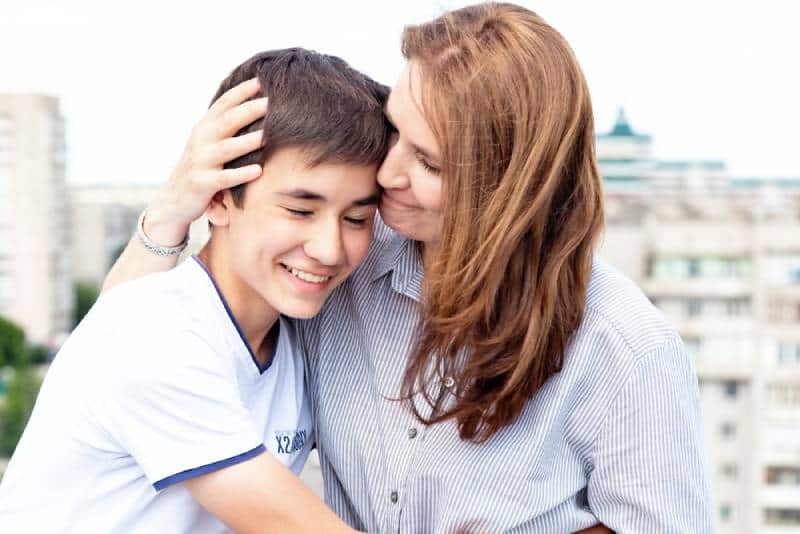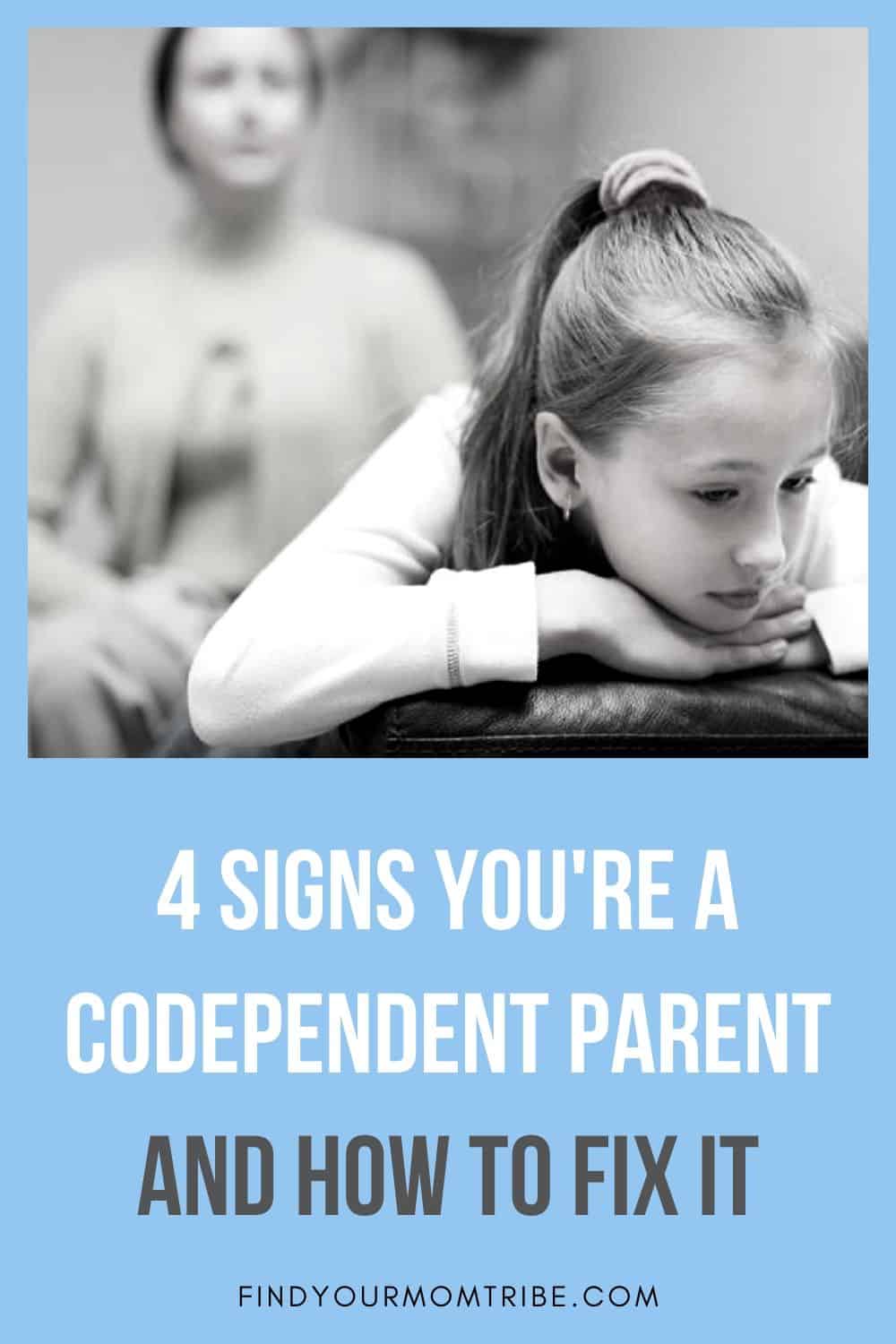During your own childhood, you or someone you knew may have had parents who seemed overly controlling. Parents who stepped in front of any single wrong thing that happened, no matter how minute. Parents who did not let their child deal with their own problems.
This is what’s known as a codependent parent-child relationship and it is arguably one of the worst things one can put a child through.
There is much more to it than just that though.
You might even be a codependent parent and not even realize it as it can be easy to confuse with regular parenting behavior.
I’m here to help you recognize if you are, indeed, one (or maybe you’re still under the influence of one) and help you deal with it.
What is a codependent relationship?
To put it simply, it is a form of toxic relationship where one partner uses the other as a means to further their own desires.
One where the dominant partner exerts an overwhelming and unhealthy amount of emotional and psychological pressure on the other partner.
They do all of this – and more – to keep their partner placated and docile, while using them as a sort of puppet who dances to their tune.
This is common in romantic relationships, but happens more often in parent-child relationships.
The most common cases occur when the parent has an unfulfilled childhood dream and now wants to project it onto their child so they can live vicariously through them.

It is the other side of that tipping point where they stop parenting and start inflicting a dangerous form of psychological abuse.
One with potentially catastrophic consequences to their child’s life and overall mental health.
I was in such a relationship with my mom, but more on that later.
How do I know if I am a codependent parent and how do I fix it?
Most parents are oblivious that they are fostering a codependent parent-child relationship as it is something that just occurs and subconsciously manifests.
It is a borderline personality disorder and should be treated as such (but sadly isn’t).
If you are reading this article, though, you must be at least somewhat semi-aware that you might be one, so here are the most apparent symptoms of being a codependent parent:
1. You feel the need to control every aspect of your child’s life
This is where whenever your child feels any form of discomfort or something happens to them, or rather, something endangers the plan you’ve engineered for them, you feel an overwhelming urge to step in and fix everything.
You don’t allow your child to learn how to sort their own problems out because it would make them less reliant on you.
Again, something that might ruin the plan. Stop. Take a step back and offer ONLY guidance and comfort.
There may be times when you have to step in as you’re not just going to start neglecting your child either.
You’re not looking to be that sort of parent, what you’re looking for is a balance between the two.

2. You deal with your child’s shift in behavior like a child yourself.
When your kid comes to you with a problem and you feel like it might cause you discomfort, you adopt a victim mentality.
You know – pouting, throwing passive-aggressive comments around, throwing your own tantrums like some lunatic, giving your child the silent treatment, or simply paying them no mind.
You know that annoying way people talk back to someone by repeating what they just said but in a naggy voice?
Yeah, that is probably you too if you are a codependent parent. Doesn’t sound so good, does it?
Well, it definitely isn’t for your child, because you’re playing with their emotions and they don’t know how to deal with it, so they break and promise that they won’t worry you about it again.

That they will be good little boy or girl, just so they don’t have to see you being dismissive of them and making a fuss about it.
This is a horrible thing to be doing to your child. Again, stop. Start considering your child’s own feelings on the matter.
Be more respectful of their opinion, no matter their age. You are a mature adult, but you are not always right.
You are here to provide guidance and help raise them, not build a mini-you.
Help them understand that they have their own needs that need to be catered to as well and that they aren’t any less important than the needs of others.
3. You push all other relationships away in favor of keeping this one strong
Sometimes the need for codependence becomes so strong that you create a divide between you and your significant other, because you think they will get in the way of you maintaining the parent-child relationship you have worked on for so long.
It could even get to the point where it is the cause of a rather serious divorce, yet you would pay it no mind because you misplaced your priorities long ago.
I hope that by now you can see that this is not a healthy way to parent your child.
You need to realize that you are smothering them with what you think is love but is actually obsession at this point.
Take a deep breath, look around, and see how your behavior has affected those around you before it’s too late.
If a divorce happens, I guarantee the consequences will be long-lasting and rather severe – both for your child’s feelings and mental health and for the family as a whole.

4. You allow your child little to no privacy
This one ties into the overly-controlling bit, but it deserves a little segment of its own.
Intimacy or private time is something that every human being needs to help them unwind and take a load off, but your control freak-ish tendency doesn’t allow your kid to have this.
This is even worse in the case of adult children, as you will instill in them a fear of holding onto any form of intimate relationship in case you decide to poke your nose into it.
The codependent relationship you have with your child will make their life miserable because they have to spend nearly every free moment calling you.
They have to do this because otherwise you’ll start guilt-tripping them into thinking that they are neglecting you, their own mother.
This type of behavior can only end in three ways.
Either your child will never experience an ounce of happiness of their own, they’ll realize what you’ve been doing to them and they’ll drop you like everyone else has, leaving you miserable…
OR you’ll realize what you have been doing, stop, and try to fix the damage that has already been done.

Why codependency is such a big problem
Why? Because you have an impact on your child on a psychological level.
You make them doubt their every decision and make them rely on you – and you alone – to guide them instead of using their own judgment.
You lower their self-esteem, their sense of self-worth; you apply more stress on top of the stress that they already have to deal with.
You teach them to disregard self-care in favor of pleasing others (again, mainly you).
You make them doubt themselves more and more, giving them low self-esteem because you never walk a mile in their shoes during an argument.
Instead you disregard them through various passive-aggressive comments, guilt trips, mood swings, and utter silence, making them think that they should never speak their minds again because their words hurt others.
Basically you turn them into a puppet, and, as I mentioned in my earlier description of the relationship type, you start to turn them into a future codependent parent.
And it’s not just your child who’s at risk here.
In some cases, codependent parents disregard their entire marriage and other loved ones in favor of focusing only on their own desires and projecting them through their beloved child.
But mostly it’s a problem because it’s like a contagious disease.
If a parent acts like this, they create the same problems in their child who will then project these problems to their kids as well.
And so on and so on, ad infinitum.

My own experience
As I mentioned before, I had a codependent parent and I didn’t notice until I was made aware of the issue by my friends.
That made me research it in order to make her aware of what my mother was doing.
It all started with what looked like love, but was just her stepping in and not letting me have a say in the matter.
She never let me resolve things on my own and often became overly involved in them.
You know that saying “Mother knows best”?
Well that was a constant refrain in our house as I was ‘too young’ and I ‘wouldn’t understand’ why things were the way they were when I had a complaint about something.
She was an unintentional narcissist in the truest sense of the word, making everything about her despite things being my issue – as if she was the one being wronged in any given situation.
This was most evident when we argued over something.
She would never pay attention to my side of the argument because she went into it with the preconceived notion that she was in the right and that wouldn’t change.
Otherwise, she would lose control, and that wasn’t allowed. If words didn’t work, she would resort to emotional manipulation with the dreaded silent treatment.
RELATED: 7 Signs Of Family Manipulation And How To Handle Them
And why did she do all of that? Well, because she too had parents who exhibited codependent behaviors.

Her parents didn’t let her attend art school, despite it being her great desire to do so, as it was a different time where women were expected to just be stay-at-home moms and take care of their kids rather than pursuing a career.
So she too unwittingly did the same. She enrolled me in a great number of art courses and classes and I even began a university degree in liberal arts.
And the worst part was how I took it all in my stride, because I didn’t know better.
I thought it was simply her way of showing love, her way of caring for me and showing me the way, something I was used to from a young age.
Heck, she even chose a few of my own relationships (and those guys weren’t at all pleasant, let me tell you).
Thankfully, I managed to muster enough self-confidence to put my foot down and point out to her how her unnecessarily overwhelming amount of affection, overprotectiveness, and her own unrealized dreams were choking me.
How she was replacing my own needs with hers. It was hard for me to say, and even harder for her to accept.
I was used to not speaking out so as to not hurt her feelings, but it had to stop.
At first it did not go well: she simply would not accept it so I severed all ties with her, moved out, and moved in with a friend for a while and got by on my part-time job.
After a week my father called me and asked to meet back home. She had finally seen how toxic her codependence was and we agreed to work it out.
We booked a family therapist and began the long road to recovering the familial bond that was very badly damaged.
After a few months we had established healthy boundaries, and in time, me and my mom became best friends again.
It was this very experience that made me realize that I wanted to become an educator.
To help guide kids to think for themselves and react in an age-appropriate way, instead of letting their parents and other family members give them a hard time and risk their future well-being.
Also, all that happened to me in my youth made me start doing what I do now. I’m so glad that I can help someone through my posts, even if it is a single person.
I love to see that I help moms overcome their problems.
Motherhood is a sensitive period in a woman’s life and we all need some extra love and understanding.
We all need support and a tap on our shoulder for all the great things we do. It’s true that we’re not kids who need validation but we’re human beings on the most important mission of our lives.
Life is already hard and we shouldn’t be harsh to each other. So listen. Understand. Help. Be supportive. Love.
Is it hard? Yes, but totally worth it!
In summary
Codependency is a plague that has been destroying households for ages and a codependent parent is probably the worst person you can be.
Take some time to analyze your relationship with your child and the way you interact with them.
If you notice ANY of these signs, make sure to talk about it with others and ask them how they see it.
After that you might want to seek professional help in the form of a psychotherapist to mend your familial bond(s).
In the end, these are opinions based on my own experiences and findings and I hope that they have helped you in some way, but I am not a psychiatrist myself.
Use these tips as a guideline to help you recognize the problem before consulting a trained professional.
READ NEXT:
- The Ultimate Guide to Gentle Parenting: How to Build and Maintain a Close Relationship With Your Child
- Democratic Parenting: An Underappreciated Solution
- Raising Teenagers: Important Things To Remember
Did this post resonate with you? Please share or pin it for later. You can also stay in the loop and follow us on Facebook, Instagram or Pinterest.

This post contains affiliate links. Please see our full disclosure for more info.

